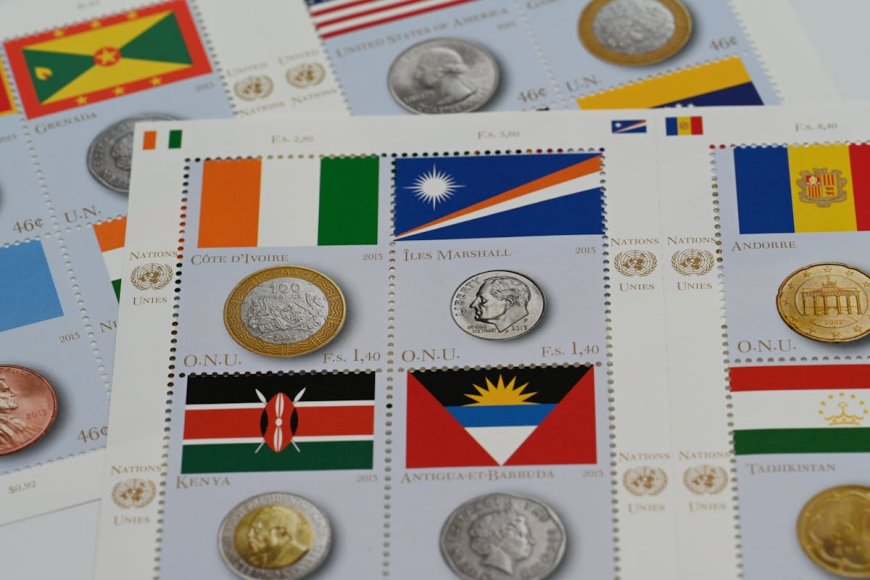Grenada in 2025: The Caribbean Paradise Hiding in Plain Sight (And Why That Might Change Soon)
This guide is for the smart traveler—the one who wants to experience the real Caribbean before it’s filtered and fenced in. Here’s everything Americans should know before Grenada gets its mainstream moment.

If you think every Caribbean island has already been overrun by cruise ships, overpriced resorts, and digital nomads posing with coconuts—think again.
Your friend's Instagram story does not feature Grenada. A Carnival cruise schedule does not include it every other Tuesday. And no, it's not "like Jamaica" or "like St. Lucia, only smaller." The point is just that.
Grenada is quietly magical—a place where nutmeg trees outnumber tourists and waterfalls wait in the jungle, not on TripAdvisor. But here's the catch: it might not stay under the radar for much longer. With whispers of luxury hotel deals and direct flights from major U.S. cities starting to pop up, the secret’s leaking.
This guide is for the smart traveler—the one who wants to experience the real Caribbean before it’s filtered and fenced in. Here’s everything Americans should know before Grenada gets its mainstream moment.
The Unspoken Truth: Grenada Isn’t “Undeveloped”—It’s Unbothered
Let’s kill the biggest myth first: Grenada isn’t “behind.” It’s not some forgotten island stuck in the past. It’s intentional.
The locals? They’re not desperate to impress tourists. They’re proud. Calm. Warm in that way where they don’t fake a smile—they give it when they mean it.
The country’s tourism board could’ve gone the flashy route. Mega-resorts. All-inclusives everywhere. But Grenada didn’t sell out. It leaned into its roots. It built eco-lodges, boutique guesthouses, and kept a strong grip on its local culture.
First-Timer's Need-to-Know Guide
Getting There Isn’t Hard—But Timing Is Key
Grenada has an international airport—Maurice Bishop International (GND)—with flights from Miami, New York, and Atlanta. Not every day, though.
Plan your trip around flight schedules. This ain’t LAX.
Also: if you’re booking in the rainy season (June to November), expect lower prices but a chance of storms. Dry season (December to May) is peak time for sun—and for price tags.
U.S. Travelers Don’t Need a Visa
Americans can stay up to 90 days visa-free. No hoops. Just bring a valid passport and a return ticket. Oh, and maybe some patience—the immigration line isn’t lightning fast.
Grenada’s Beaches Are Empty for a Reason—and It’s Glorious
You want crowded beaches with bars blaring Top 40 hits? Go to the Bahamas. You want to walk for 20 minutes on Grand Anse Beach and only see two other humans? That’s Grenada.
It’s not that people don’t visit. It’s that mass tourism hasn’t eaten it alive yet.
Don’t Miss:
- Grand Anse Beach – Long. Soft. Blue. Everything.
- La Sagesse Beach – A hideaway for people who don’t want to share.
- Bathway Beach – Stronger waves. Local hangout. Real vibes.
Tip: some beaches are almost too peaceful. Pack snacks, sunscreen, and your own shade if you’re planning to stay awhile.
The Food Scene Will Ruin You (In the Best Way)
You will dream about Grenadian food long after you leave. It’s deeply Caribbean—but also unique. Think lots of spice (hello, nutmeg and cinnamon), tons of fresh produce, and a little British twist thanks to colonial history.
What You Need to Try:
- Oil down – The national dish. A stew of breadfruit, salted meat, turmeric, and coconut milk cooked in a single pot. Sounds weird? It’s incredible.
- Roti – Influenced by Indian flavors. Curry meat wrapped in flatbread. Yes, it’s messy. No, you won’t care.
And forget fancy dining every night. The best food here often comes from roadside stands and open-air markets.
It has a reason for being known as the "Spice Island."
This isn’t just branding. Grenada literally smells like cinnamon when the wind hits right.
It’s one of the world’s top exporters of nutmeg, and that spice runs deep in the island’s identity. You’ll see it on the flag. You’ll taste it in your rum. You’ll spot it drying on racks along village roads.
Want to feel the island’s soul? Visit a working spice plantation. Talk to the farmers. Smell the vanilla pods and mace. You won’t get this experience anywhere else in the Caribbean.
Safety: Chill, But Stay Smart
Grenada is one of the safest Caribbean islands. Violent crime? Extremely rare. Locals are generally helpful, and solo female travelers report good experiences.
That said, don’t lose your common sense:
- Don’t flash expensive tech in remote areas.
- Don’t walk alone on isolated beaches at night.
- Keep an eye on your drink (obviously).
It’s chill. Just stay aware.
The Brochures Don't Include Grenada's Best-Kept Secrets
Underwater Sculpture Park
Yes, you read that right. There’s a sculpture garden underwater. It’s eerie, beautiful, and unlike anything else you’ve ever snorkeled over. Bring a waterproof camera—or regret it forever.
Concord Falls
A short hike gets you to a hidden waterfall so perfect it looks fake. Cold water. No crowds. Do it.
River Antoine Rum Distillery
This place is still powered by a water wheel. The rum is strong enough to start a lawn mower. Locals drink it straight. You’ve been warned.
Where to Stay (Without Selling Your Soul)
Skip the cookie-cutter hotels.
Grenada’s charm lives in its boutique hotels, hillside cottages, and family-run guesthouses. Here are a few options that won’t kill your budget or your soul:
- A charming boutique hotel in a prime location close to Grand Anse, Mount Cinnamon offers vistas.
- Petit Anse – In the north. Peaceful. Lush. Authentic.
- Airbnbs – Plenty of stunning rentals—just be sure they’re registered and reviewed.







